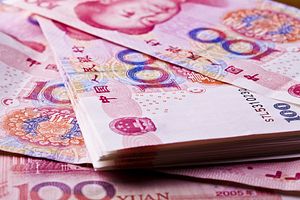China’s offshore RMB bond market is growing, and China’s leadership is looking to boost its expansion. China is to remove required government approval for offshore corporate bonds in order to widen financing avenues available to firms. Currently, domestic Chinese corporations must obtain approval from the National Development and Reform Commission. This will change as China increasingly opens up its capital account.
The offshore RMB (“dim sum”) bond market is small but burgeoning. The market is relatively young: The first offshore RMB bond was issued by China Development Bank in Hong Kong in 2007, and the first offshore RMB corporate bond was launched in August 2010 by McDonalds. Offshore RMB bonds are issued by the Ministry of Finance, Chinese corporations, foreign institutions, multinational corporations, Hong Kong firms, and foreign local governments. These bonds provide important channels of liquidity for firms and government bodies, and are poised to play a larger role in financing institutions going forward.
However, the offshore RMB bond market is still immature. The dim sum bond market currently faces relatively low levels of liquidity and is concentrated in the hands of retail, rather than institutional investors; both characteristics are signs that the market is underdeveloped. One reason for this underdevelopment is a lack of transparency, as many bonds issued in this market are unrated. What is more, while non-Chinese corporate bonds are often investment grade, offshore RMB bonds issued by Chinese firms are generally riskier than those issued their multinational counterparts.
The offshore bond market has been highlighted in recent months by the financial troubles of Kaisa Group, a mid-size Chinese property developer that has faced potential default on offshore bond debt due to a graft probe. Kaisa’s woes reflect the troubled financial climate among mainland property developers, some of which are offshore bond issuers. Holders of offshore RMB bonds have demanded higher yields to cover potential risks in the past three months. The market is expected to rebound as the RMB continues to appreciate and the Chinese economy recovers from its downturn.
Despite increased risk in the property market, confidence in the RMB has expanded rapidly in recent years, as RMB clearing hubs have been initiated all over the world. RMB clearing centers have been set up in London, Paris, Sydney, Luxembourg, Doha, Frankfurt, Seoul, Singapore, Taipei, and Hong Kong. The offshore RMB bond market has grown in step; for example, the U.K. Treasury issued 2 billion RMB ($322 million) in sovereign bonds in October 2014, the Bank of China Paris issued the same amount in July 2014, and so on. Some analysts have even gone so far as to predict the RMB will soon become an international reserve currency, the ultimate symbol of currency internationalization. Whether or not this is indeed a reality, there is great enthusiasm for holding RMB and issuing RMB-denominated bonds.
Expanding offshore RMB bond issuance is one aspect of China’s aim to increase the international scope of its corporate sector under the “go out” strategy. This strategy, which has been in place since 1999, is gradually allowing increased financial and real business activity overseas. Offshore RMB bonds allowed foreign investors to obtain a “piece of the action,” in the hopes that China’s economy and currency will continue to advance over time.

































